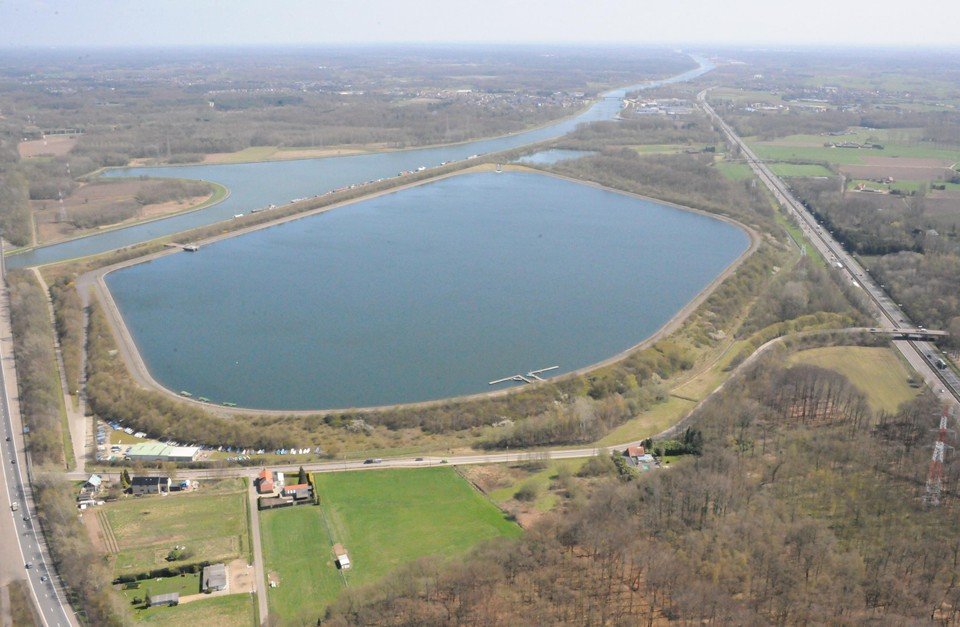The increasingly warm summers and their effect on groundwater levels in Flanders will be one of the region's key challenges in the coming years, which is why it is converting plans for a business park in Antwerp into a much-needed large-scale water reserve.
As part of the Blue Deal, Flanders' programme to combat drought and water scarcity, it will be working on creating a storage basin for three to four million cubic metres of water on the Zwaaikom site in Ranst, in the province of Antwerp, instead of an industrial site.
"The most important task for our Blue Deal is to make space for water. With an extra storage basin as a strategic reserve, we strengthen our drinking water supply during future longer periods of drought," Zuhal Demir, Flemish Minister for the Environment, said in a statement.
While the Flemish Environment Agency (VMM) confirmed last week that there is no risk that the drinking water supply will run dry despite the majority of groundwater monitoring sites showing very low levels for this time of year, Demir stressed that it is necessary to have "extra margin during future long periods of drought."
Double benefit
The water reservoir will have two main functions, according to Demir. Firstly, it will provide natural, initial purification of the raw water from the Albert Canal, located in northeastern Belgium, which connects Antwerp with Liège, and also the Meuse river with the Scheldt river.
More importantly, in the context of persistent droughts, the water that will be collected by the reservoir serves as a strategic reserve.
While during the wetter periods of the year, enough water flows through the Meuse and the Albert Canal towards the sea, the flows are dropping sharply and for longer periods during the summer months as a result of climate change.
Related News
- Smoking and fires in Flemish forests and nature reserves forbidden from Monday
- More than 100 municipalities in France without drinking water
- Belgium starts hottest week of 2022, first real heatwave expected
"With this additional reservoir, we can store some of the water from wetter periods for use during the dry summer months," Demir said.
The location of the site was chosen due to its proximity to the already operational Broechem reservoir and the production centre in Oelegem, run by drinking water company Water-Link, which already operates three reservoirs with a total capacity of more than seven million cubic metres.
Demir is starting a planning process for a spatial implementation plan, which focuses on maximum integration into the surrounding environment and nature, as an important protected area lies next to the reservoir's planned site. Using sustainable techniques such as natural planting on the banks, the reservoir is even expected to enhance the habitat of local aquatic fauna and flora.

